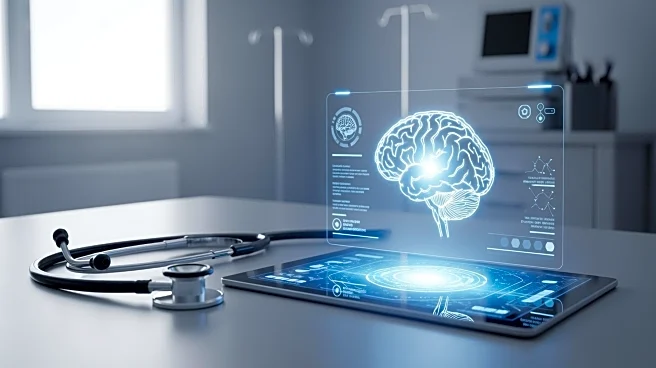What's Happening?
The HLTH 2025 conference in Las Vegas showcased the healthcare industry's shift towards real-time, AI-driven intelligence embedded in clinical workflows. Executives emphasized the importance of clinically
validated solutions that integrate seamlessly into healthcare systems, driving better patient outcomes and operational efficiency. The conference highlighted innovations in women's health, behavioral support for GLP-1s, and complex pediatric care, with AI tools now playing a central role in decision-making processes.
Why It's Important?
The integration of AI into healthcare represents a significant advancement in medical technology, offering the potential to improve patient care and streamline operations. By moving beyond the hype phase, AI is now seen as a core utility that can enhance transparency, accountability, and trust in healthcare systems. This shift could lead to more equitable outcomes and faster innovation, benefiting both patients and providers.
What's Next?
Healthcare organizations are expected to continue adopting AI solutions, focusing on clinical validation and measurable ROI. The emphasis on interoperability and patient empowerment may drive further developments in personalized medicine and data-driven care. As AI becomes more embedded in healthcare, stakeholders will need to address ethical considerations and ensure responsible use of technology.
Beyond the Headlines
The cultural and ethical implications of AI in healthcare highlight the need for transparency and patient consent in data sharing. The focus on human-centered care underscores the importance of balancing technological advancements with patient needs and experiences.











